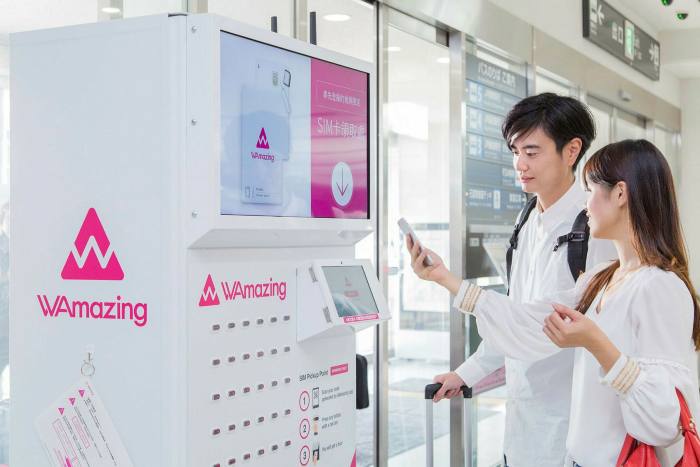[ad_1]
Japan ideas to tap the $1.5tn could of the world’s most significant pension fund to build a desperately necessary domestic start-up tradition right after many years of failure by the country’s economical sector.
Unveiling the “grand design” of Primary Minister Fumio Kishida’s “new capitalism” agenda, his cabinet this week announced a press for the enormous Governing administration Pension Financial commitment Fund to improve funding for start out-ups.
The transfer to invigorate the start-up sector is portion of Kishida’s economic programme, a hodgepodge of guarantees to devote in human cash, decarbonisation and technological innovation that has been criticised for a deficiency of clarity.
The government said it was functioning to strengthen the selection of begin-ups 10-fold more than 5 many years and will also boost other steps which includes serving to new businesses bid for community procurement tasks and producing it less difficult for founders to accessibility loans.
“Fostering get started-ups is the critical to promoting the dynamism and expansion of the Japanese economy and resolving social troubles,” the agenda stated.
It did not give details on how GPIF money would be channelled to start-ups, but the Keidanren, Japan’s premier business foyer, in March called for use of the ¥10tn ($75bn) the fund has available for alternative investments.
Whilst the GPIF puts the bulk of its revenue in equities and bonds, it can invest up to 5 for every cent of its full property in solutions including personal fairness and authentic estate. As of March 2021, even so, it had allocated only a paltry .7 for every cent to possibilities — and of that, only a sliver went to personal equity, which contains venture cash investments.
“The impact of applying GPIF cash to make investments in get started-ups must be enormous supplied the huge size of the fund,” explained Fumiko Kato, main executive at start off-up WAmazing, which offers overseas visitors in Japan with translation and scheduling products and services. “It will not only add to the growth of commence-ups, but also enhance pension fund overall performance through likely significant returns.”
Kato added that specified the problems in determining what she identified as “star hits”, it would make feeling for the GPIF to make investments indirectly by means of undertaking money money that had the vital knowhow.
Naoko Ogawa, a director at the Keidanren, claimed the GPIF could make long-phrase profits from early-stage firms. “It is great to see that most of our proposals on boosting start out-ups have been included in the grand style,” Ogawa claimed.
Although Japan’s start off-up scene has develop into more lively over the previous decade, it still lags guiding other key economies. According to CB Insights, Japan is property to only 6 unicorns, or start off-ups with a value of more than $1bn, compared with 614 in the US and 174 in China.
Research by Japanese data provider First demonstrates that start out-ups in Japan raised about $5.8bn from VCs final calendar year, a 46 for each cent increase from a calendar year earlier, but nonetheless significantly at the rear of the $329bn in the US.
Ogawa mentioned pension funds performed an important position in start out-up funding in the US. In Japan, GPIF investment could be adopted by personal firms this sort of as insurance plan providers to aid break a cycle in which underfunded start out-ups failed and thus discouraged even further expenditure in the sector.

But GPIF investment decision in start off-ups could experience opposition within the comparatively conservative ministry of labour that controls the fund. Ministry bureaucrats earlier resisted reforms by former key minister Shinzo Abe that gave expenditure professionals increased say at the fund and tilted its portfolio into much more risky property.
The risks inherent in investing in modest, frequently unprofitable companies were underlined final month, when Japanese conglomerate SoftBank’s Eyesight Fund, 1 of the world’s premier start-up investors, posted an once-a-year reduction of ¥3.5tn.
Shingo Ide, main fiscal engineer at NLI Study Institute claimed strong controls and enhanced transparency would be needed to guarantee the GPIF concentrated on development-oriented investing.
“The accomplishment of this programme is dependent on no matter if GPIF can make pure investments with out political interference — it’s definitely not going to get the job done if it is applying a aspect of its income to assistance start off-ups since politicians are asking it to do it,” Ide said.
The agenda permitted this week also involved plans to support get started-ups contend for community contracts from the national governing administration.
Yusuke Mizuno, who runs education start-up Lifetime is Tech, supported the shift, stating a scheme that produced it a lot easier to bid for area governing administration contracts had aided distribute adoption of his company’s computer software.
“This scheme not only enables a lot more funding to be directed to start-ups, but it also gives them a credibility boost,” Mizuno mentioned.
The Kishida administration also dedicated to eliminating the need to have for particular ensures or use of personalized belongings this kind of as residences or autos as mortgage collateral by start-up founders. An agency under the overall economy ministry has now begun guaranteeing up to 50 % of loans offered by banks to tech commence-ups.
“It requires dollars and time for deep tech start off-ups to start a business,” claimed Shinya Nanno at the Organisation for Compact & Medium Enterprises and Regional Innovation. “Banks, on the other hand, are more unwilling to lend funds to them than to their common customers. So we want to assist bridge that hole by sharing challenges with banking companies,” he said.
Mizuno, of Daily life is Tech, claimed start off-ups have been crucial for Japan’s foreseeable future.
“In a country where inhabitants is falling, innovation is a key to building revenue — Japan really should purpose to turn out to be a region in which business people can increase and innovate. That is pretty essential for Japan’s revival,” he claimed.
[ad_2]
Supply url





